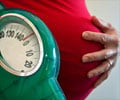Information about Enoxaparin
Generic Name : EnoxaparinUp-to-date prescription details regarding Enoxaparin are provided here.
Pronunciation : ee nox a pa' rin
Learn the correct pronunciation of the Enoxaparin, understand it's uses, recommended dosages, its indications, how to take, when to take, when not to take, side effects, warnings and its and its storage instructions.You will also find a list of the medication's International and Indian brand or trade names, as well as its pricing information. For verification of the information presented on this page or for additional clarifications, it's advisable to consult your doctor.
ICD Code : Y44.2 Therapeutic Classification : Anticoagulants / Antithrombotics
Trade Names/Brand Names of Enoxaparin
India :
Zaparin |
Lomonox (60mg) |
Lmwx -PFS (0.2ml) |
Dynalix 40mg/0.4ml Injection |
Cutenox (0.8 ml) |
Enqxarin |
Thrombiflo (60 mg) |
Maxiparine (0.4 ml) |
Dynalix |
Clexane
International :
Lovenox
Overview of Enoxaparin
This medication prevents blood clots in patients who are on bed rest or who are having orthopedic surgery of the hip replacement, knee replacement, or large intestinal surgery. It is a low molecular weight heparin.Why is Enoxaparin Prescribed? (Indications)
It is indicated alone or in combination with warfarin to prevent and treat blood clots in the leg. It is a low molecular weight heparin. Enoxaparin is indicated for preventing and treating blood clots. Patients who are immobile for long duration are at increased risk of blood clot formation especially after prolonged bed rest due to surgeries.When should Enoxaparin not be taken? (Contraindications)
• Patients who are allergic to Enoxaparin, Heparin, Benzyl alcohol• Patients with excess bleeding
• Patients with low platelet count
What is the dosage of Enoxaparin?
Enoxaparin is available as injection in 100 mg/mL concentration.It is also available as Prefilled syringes, graduated prefilled syringe and multiple dose vials.
It is given as subcutaneous (into the fatty layer of skin) or intravenous (into the vein) injection.
How should Enoxaparin be taken?
For preventing DVT in abdominal surgery, it is given as 40 mg subcutaneous once daily up to 12 days. It is recommended to be given as 30 mg SC every 12 hours up to 14 days DVT prophylaxis in hip and knee replacement surgery.For acute heart attack, it is given as 30 mg single IV bolus plus a 1 mg/kg SC dose followed by 1 mg/kg SC every 12 hours at least 8 days along with aspirin.
Enoxaparin should not be mixed with other injections or infusions. It can be mixed with normal saline solution (0.9%) or 5% dextrose in water.
Missed a Dose?
Patients should take it as soon as they remember. Patients should not double their next dose or take more than the prescribed dose.What are the side effects of Enoxaparin?
Heart- Abnormal heart rhythm, heart failure.Skin- Cutaneous vasculitis(inflammation of blood vessels in the skin), easy bruising, discoloration of skin, skin necrosis occurring at the injection site or distant from the injection, blisters, rash.
Gastrointestinal- Nausea, diarrhea.
Blood- Anemia, major bleeding, reduced platelets, in some people increase in platelets.
Hypersensitivity- Systemic allergic reactions including anaphylactic/anaphylactoid reactions, itching, and hives.
Local- Pain, tenderness, irritation and redness, bleeding.
Genitourinary- Blood in urine.
Respiratory- Difficulty in sleeping, lung swelling and inflammation.
Liver- Increase in level of liver enzymes.
Miscellaneous- Mental confusion, fever, bleeding within the spinal cord, raised potassium level in the blood, swelling in the extremities.
What are the other precautions for Enoxaparin?
• Enoxaparin increases the risk of bleeding. So, pressure at the puncture site should be maintained for sometime• Use with caution in patients with increased bleeding risk such as - stomach ulcer, high blood pressure, diabetic retinal disease
• Use with caution in patients with kidney problems
• Monitor platelet count of patients – before starting the injection and regularly thereafter
• Do not exchange use of enoxaparin with heparin
• Pregnant women with mechanical heart valves and their fetuses, may be at increased risk and may need more frequent monitoring and dosage adjustment.
What are the Drug Interactions of Enoxaparin?
There can be increased risk of bleeding if the following drugs are taken with Enoxaparin:•Anticoagulants
• Aspirin
• Ketorolac
• Dipyridamole
• Sulfinpyrazone











